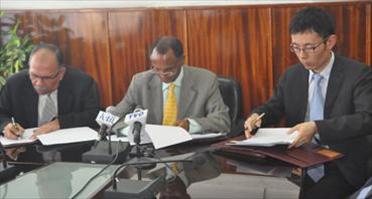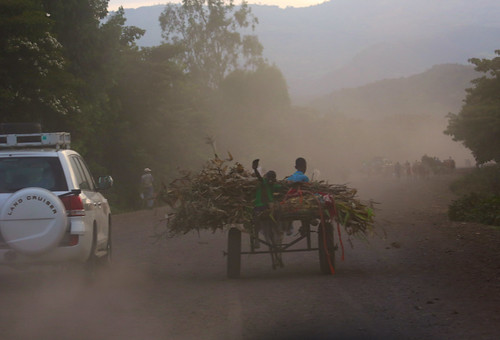Ethiopia to build road linking it with Sudan, South Sudan, Kenya
By Tesfa-Alem Tekle
March 8, 2013 (ADDIS ABABA) – Landlocked Ethiopia has signed agreements with Chinese and Indian companies to construct highways that will connect the Horn of Africa nation with neighbouring Sudan, South Sudan and Kenya.

The road projects will branch out from the adjacent regions of Oromia, Gambella and South Ethiopia Peoples’ States covering 260 km and will cost up to $130 million.
A government source told Sudan Tribune on Friday that contract agreements were signed on Thursday between the Ethiopian Roads Authority Director-General, Zaid Woldegebriel, the General Manager of the Chinese CGC Overseas Construction Group Co. Ltd., Gao Lei, and the Vice President of India’s International Business of JMC Projects Ltd, Manmohan Sawhney.
The road projects that stretch from Mega-Moyale and Turmi-Namraputh also include upgrading the current gravel road of Dima-Raad in Gambella and South Ethiopia Peoples State to an asphalt surface.
Some 84% of the cost will be secured in loan from the African Development Bank and the road projects will be completed in less than three years, if all goes to plan.
Ethiopia is investing in cross-border road networks to boost economic ties with its neighbours and to create other alternative access to access sea ports.
After Eritrea and Ethiopia fought border war in 1998-2000, Ethiopia has been highly dependent on Djibouti for imports and exports, spending 98 percent of its export and import freight coming through Port Djibouti.
Other East African countries are also making investments in building roads and rail ways to boost trade in the region.
Landlocked South Sudan which suspended exporting crude oil via Sudan’s pipelines in January last year over a transit fee dispute said on Wednesday that it is building a $50 million, 100 kilometer road into Ethiopia as alternative, to export its oil via Djibouti.
“The government has given the go ahead for the road and construction is expected to start before this month” South Sudan’s information minister, Barnaba Benjamin, was quoted as saying in The Wall Street Journal.
(ST)

